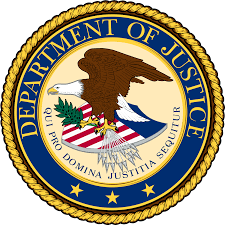To close out 2022 in Foreign Corrupt Practices Act (FCPA) enforcement actions, the Department of Justice (DOJ) and Securities and Exchange Commission (SEC) both announced settlements of FCPA enforcement actions with Honeywell UOP, a US-based subsidiary of Honeywell International Inc. For its actions, Honeywell agreed to a criminal penalty of about $79 million, with the DOJ crediting up to $39.6 million of the criminal penalty for Honeywell’s payments to authorities in Brazil in related proceedings. The company agreed to pay the SEC $81.5 million in disgorgement and prejudgment interest and the SEC provided for an offset of up to $38.7 million for payments to Brazilian authorities.
US Attorney Alamdar S. Hamdani for the Southern District of Texas said in the DOJ Press Release, “This case exemplifies corporate misconduct on a global level. Prosecuting and investigating this type of crime is an important role our office takes seriously in order to ensure fair and equal playing fields for U.S. companies and consumers. We will continue our efforts to aggressively investigate and prosecute those who violate the FCPA and combat corrupt practices in order to preserve the integrity of our nation’s business dealings here and abroad.”
According to the DOJ Press Release, “between 2010 and 2014, Honeywell UOP conspired to offer an approximately $4 million bribe to a then-high-ranking executive of Petróleo Brasileiro S.A (Petrobras) in Brazil. Specifically, Honeywell UOP offered the bribe to secure improper advantages in order to obtain and retain business from Petrobras in connection with Honeywell UOP’s efforts to win an approximately $425 million contract from Petrobras to design and build an oil refinery called Premium.” The company also ran into trouble in Algeria, as was noted in the SEC Press Release which stated, “in 2011, employees and agents of Honeywell’s Belgian subsidiary paid more than $75,000 in bribes to an Algerian government official to obtain and retain business with the Algerian state-owned entity Sonatrach.”
In Brazil, Honeywell entered into an agency agreement with a sales agent for the purpose of funding and paying the $4 million bribe to the high-ranking Petrobras executive. Interestingly, the corrupt Petrobras executive was paid a percentage of the contract value, which was funded with the full knowledge of Honeywell’s US corporate office. In exchange for the bribe payments and after obtaining business advantages, including inside information and secret assistance from the Petrobras executive, Honeywell won the contract. Honeywell earned approximately $105.5 million in profits from the corruptly obtained business. The Algerian bribes were paid by Honeywell Belgium through the well-known corrupt entity Unaoil and were made via a pass-through payment to a group of people in Europe who purportedly had helped Honeywell Belgium secure a contract with Sonatrach.
Honeywell was able to secure a Deferred Prosecution Agreement (DPA) from the DOJ and although the company did not self-disclose its conduct and therefore did not receive any discount for doing so, the company did receive a 25% discount through for its cooperation with the Fraud Section’s and the Office’s investigation “by, among other things, (i) proactively disclosing certain evidence of which the Fraud Section and the Office were previously unaware; (ii) providing information obtained through its internal investigation, which allowed the government to preserve and obtain evidence as part of its own independent investigation; (iii) making detailed presentations to the Fraud Section and the Office; (iv) voluntarily facilitating interviews of employees; (v) collecting and producing voluminous relevant documents and translations to the Fraud Section and the Office, including documents located outside the United States.” The SEC Order stated, “Honeywell cooperated in the Commission’s investigation by identifying and timely producing key documents identified in the course of its own internal investigation, providing the facts developed in its internal investigation, and making current or former employees available to the Commission staff, including those who needed to travel to the United States.”
Interestingly, while the DPA does require Chief Compliance Officer (CCO) certification, it does not mandate a monitor. According to Attachment F in the DPA, the Chief Executive Officer (CEO) and CCO are both aware of the compliance obligations of Honeywell as laid out in the DPA, and “based on a review of the Companies’ reports submitted to the Department of Justice, Criminal Division, Fraud Section and the United States Attorney’s Office for the Southern District of Texas pursuant to Paragraph 12 of the Agreement, the reports are true, accurate, and complete.” Moreover, both the CEO and CCO must certify that, based on their “review and understanding of Companies’ anti-corruption compliance programs, the Companies have implemented anti-corruption compliance programs that meet the requirements set forth in Attachment C to the Agreement. The undersigned certifies that such compliance programs are reasonably designed to detect and prevent violations of the anti-corruption laws throughout the company’s operations.”
Finally, as noted herein, the case was truly international both in the scope of the bribes paid and in the use of the well-known corrupt energy industry agent Unaoil by Honeywell. The Unaoil connection was most probably how the DOJ was first notified about Honeywell’s bribery and corruption. Enforcement was also international in scope with a part of both the DOJ and SEC fines and penalties credited to payments made by Honeywell based upon the investigation in Brazil by the Controladoria-Geral da União (CGU), the Ministério Público Federal (MPF), and the Advocacia-Geral de União (Attorney General’s Office).
Join me tomorrow where I take a deep dive into the bribery schemes, or profit sharing with a King.






